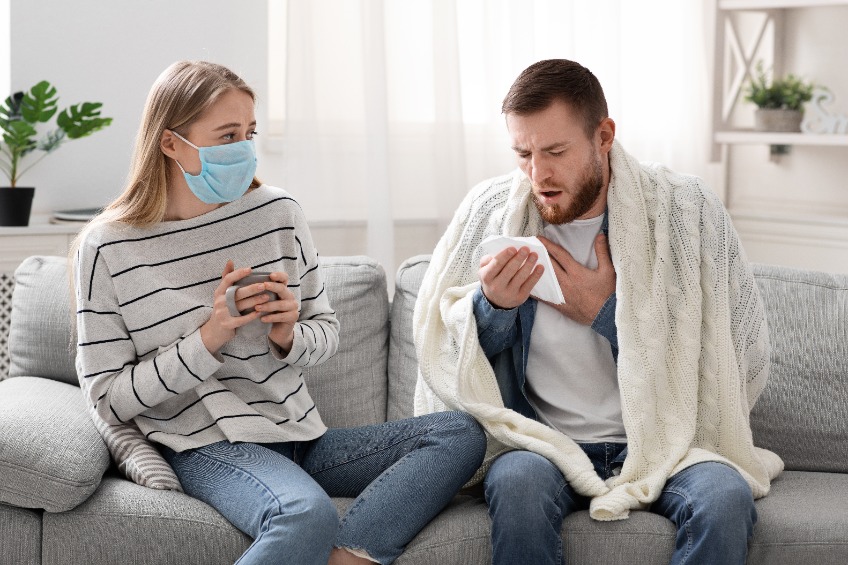RSV, or respiratory syncytial virus, is a virus that causes respiratory illness. RSV is spread easily from person to person in the air from when a sick person coughs or sneezes. The symptoms caused by RSV are usually mild and are like cold symptoms. Many people recover in a week or two after contracting the virus, but in certain cases it can lead to serious illness. Infants and older adults are most at risk for serious illness from RSV. RSV can lead to pneumonia and/or bronchiolitis (swelling of the small, branching tubes in the lungs that carry air in and out). RSV is the most common cause of these illnesses in children younger than 1 year of age in the United States, according to the CDC (Centers for Disease Control and Prevention). Infection with RSV tends to be more common in the fall and winter months, just like the cold and flu. In the same fashion as with the cold and flu, some preventative measures can be taken to avoid getting infected with RSV. Wash your and your child’s hands often with soap and water or hand sanitizer, avoid sharing glasses, cups, or utensils, clean surfaces frequently, and avoid other people who are sick.
Common symptoms associated with RSV infection include stuffy or runny nose, mild cough, fever, and decreased appetite. In more progressed bronchiolitis cases, other symptoms may include fast breathing, pauses between breaths, wheezing, severe cough, and trouble eating or drinking.
What should you do if you think your child has RSV?
Most of the time, children with RSV bronchiolitis do not need to see a doctor, and their body resolves the viral infection on its own. However, if your child is less than 3 months of age and has a fever or you notice any more serious symptoms like a fever lasting more than 3 days, fewer wet diapers than normal, or trouble breathing leading to flared nostrils or the muscles between your child’s ribs or below the rib cage appear to be caving in, you should call your child’s health care provider right away. If your child stops breathing, has blue or gray lips, gums, or fingernails, has a very hard time breathing, starts grunting, or looks like they’re getting tired from working to breath, seek immediate medical attention by calling 9-1-1.
How is RSV treated?
A doctor can test for RSV or other respiratory viruses to determine whether your child has RSV. Because RSV is caused by a virus, your healthcare provider most likely will not offer antibiotics because antibiotics only work for bacterial infections (not viral). If needed, mucus can be suctioned from your child’s nose to help them breathe, or they may be provided with supplemental oxygen to help them breathe. The main thing to make sure of is that he or she gets enough oxygen.
If you are at home helping your child to feel better from RSV, you can help by assuring they get enough fluids. You also can remove the mucus from their nose with a suction bulb. Placing a humidifier in the room where your child sleeps can help them feel more comfortable too. If your child has a fever and is uncomfortable because of it, over-the-counter acetaminophen (Tylenol) or ibuprofen (Advil, Motrin) can help alleviate the symptoms. Never give a child younger than 18 years old aspirin. Read the over-the-counter labels carefully or ask your local pharmacist whether a product is safe to give your child. If your child is over the age of 1, you can try propping their head up on pillows. Sleep in the same room as your child while they are sick with RSV, so you can know right away if they begin to have trouble breathing.
If you’re not sure how to manage your child’s illness, contact their health care provider for advice.
Disclaimer: This blog is written for informational and educational purposes only. It is not intended to be a substitute for professional medical advice, diagnosis, or treatment. Always seek the advice of your physician or other qualified health provider with any questions you may have regarding a medical condition. Never disregard professional medical advice or delay in seeking it because of something you have read or seen online.
Resources:
1) https://www.cdc.gov/rsv/index.html
2) https://www.cdc.gov/vaccines/












